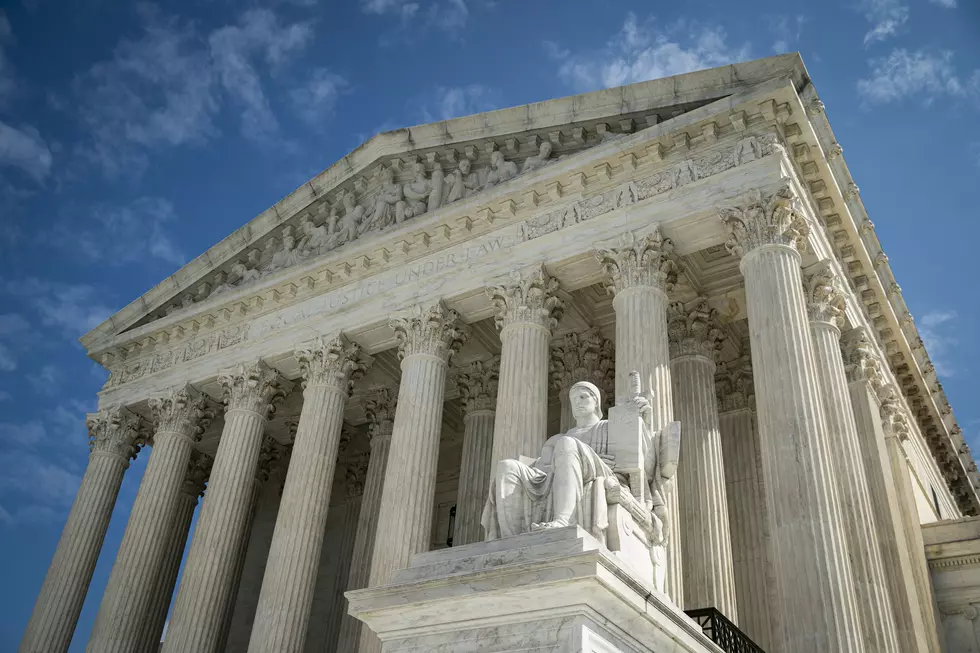![SCOTUS Electoral College Case Could Matter [OPINION]](http://townsquare.media/site/518/files/2020/10/GettyImages-1228773157.jpg?w=980&q=75)
SCOTUS Electoral College Case Could Matter [OPINION]
The 2019-2020 Supreme Court session has been headlined by landmark decisions to grant LGBTQ workplace rights under the Civil Rights Act of 1964, uphold protections for immigrants under DACA, and rule in favor of a New York Grand Jury that sought to subpoena President Trump’s tax returns.
These rulings were departures from the Supreme Court’s 5-4 reactionary tilt, and there were some major decisions that still went that way, but it’s a 9-0 decision on the electoral college that could be the most consequential case of the year.
The electoral college, as we all know, is the nonsensical method by which we pick the president. Electors are distributed proportionally by state, and whichever candidate earns 270 or more electors wins the presidency. What many people do not know is that these electors are not abstract point totals, but actual people that vote on behalf of their state for the president.
Theoretically, an elector may decide to cast a vote for a candidate who didn’t win their state, but most states have laws in place that bind electors to a certain vote. The constitutionality of those laws was challenged when a group of what are called “faithless electors” in the state of Washington had been fined $1,000 each when they cast their votes for someone other than Hillary Clinton, who had won the state’s popular vote and by state law had earned the electors. This sparked a legal challenge that made its way to the Supreme Court.
In Chiafalo v. Washington, the Court ruled that a state may constitutionally enforce presidential electors to pledge support to his party’s nominee – and the state voters' choice – for president. Justice Elena Kagan, writing for the majority, affirms that Article II, Section 1, Clause 2 of the Constitution grants state legislatures clear authority to direct their electors on how to vote.
This ruling has made its way into the national conversation following President Trump’s contraction of COVID-19 and his subsequent hospitalization at Walter Reed Medical Center. As of this writing, the president is reportedly well and on his way to recovery. However, given that we have two candidates slated to become the oldest president in American history in the midst of a global pandemic, people have rightfully raised the question “What happens if Trump or Biden can no longer run for president?”
It would be undoubtedly chaotic. The DNC or the RNC could select a new candidate, but it’s a virtual impossibility the new candidate would be able to be on the ballots, especially given that voting has already begun in some states. Election law expert Richard Hasen surmises that the likely result is that the ballots will remain the same with electors likely to be directed on how to vote by their state legislature after the election based on the result.
And given their absolute authority to do so under Chiafalo, we would likely end up with some brutally political directives by certain state legislatures that will bring this issue back to the Supreme Court again. In which case, it would seem as though the Court would reaffirm its previous unanimous decision. And in the majority opinion of the Court, Justice Kagan recognizes the possibility of a presidential candidate passing away – and the likely turmoil it would cause – noting some states have drafted specific provisions to deal with this type of situation, and that the Court anticipates that the states that don't would address it accordingly.
It's worth noting, however, that this is merely an indicator of how they may rule, and the Court is never bound to its precedent. In fact, considering the soon to be 6-3 right-wing majority on the Court, its deference to Chiafalo could change drastically if the results of the election and electoral college are not in the President Trump's favor because as I’ve written before, the Court itself is as purely political as any legislative body.
Marcus Ferro is the host of The Marcus Ferro Show airing Saturdays on 1420 WBSM from 1 p.m. to 4 p.m. Contact him at marcusferrolaw@gmail.com. The opinions expressed in this commentary are solely those of the author.

More From WBSM-AM/AM 1420

![U.S. Capitol Siege Should Serve as a Warning [OPINION]](http://townsquare.media/site/518/files/2021/01/GettyImages-1294949440.jpg?w=980&q=75)
![It’s Basically Hijacking Democracy [PHIL-OSOPHY]](http://townsquare.media/site/518/files/2020/11/GettyImages-1285530007-1.jpg?w=980&q=75)

![Associate Justice Amy Coney Barrett Is Not Illegitimate [OPINION]](http://townsquare.media/site/518/files/2020/10/GettyImages-1282403009.jpg?w=980&q=75)
![SCOTUS Confirmation Should Motivate GOP Voters [OPINION]](http://townsquare.media/site/518/files/2020/10/GettyImages-1282403621.jpg?w=980&q=75)
![Do We Elect by Popular Vote? [PHIL-OSOPHY]](http://townsquare.media/site/518/files/2020/10/GettyImages-1027430956.jpg?w=980&q=75)
![Trump Changed the Courts While Biden Is Stuck in the Past [OPINION]](http://townsquare.media/site/518/files/2020/10/GettyImages-1276848011.jpg?w=980&q=75)
![Nearly 18,000 Votes Were Cast Off [PHIL-OSOPHY]](http://townsquare.media/site/518/files/2020/09/RS24656_GettyImages-146069212-scr.jpg?w=980&q=75)
